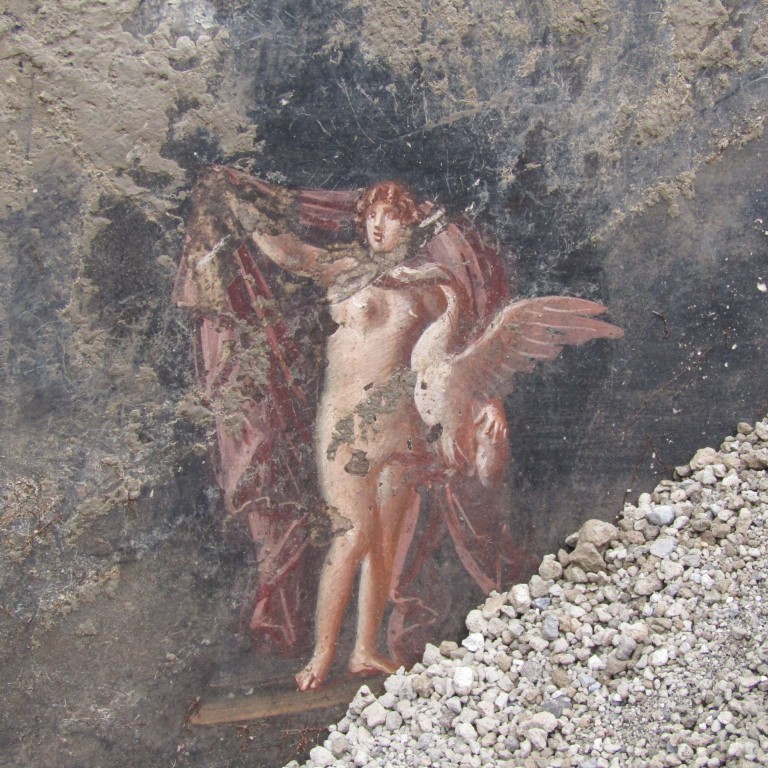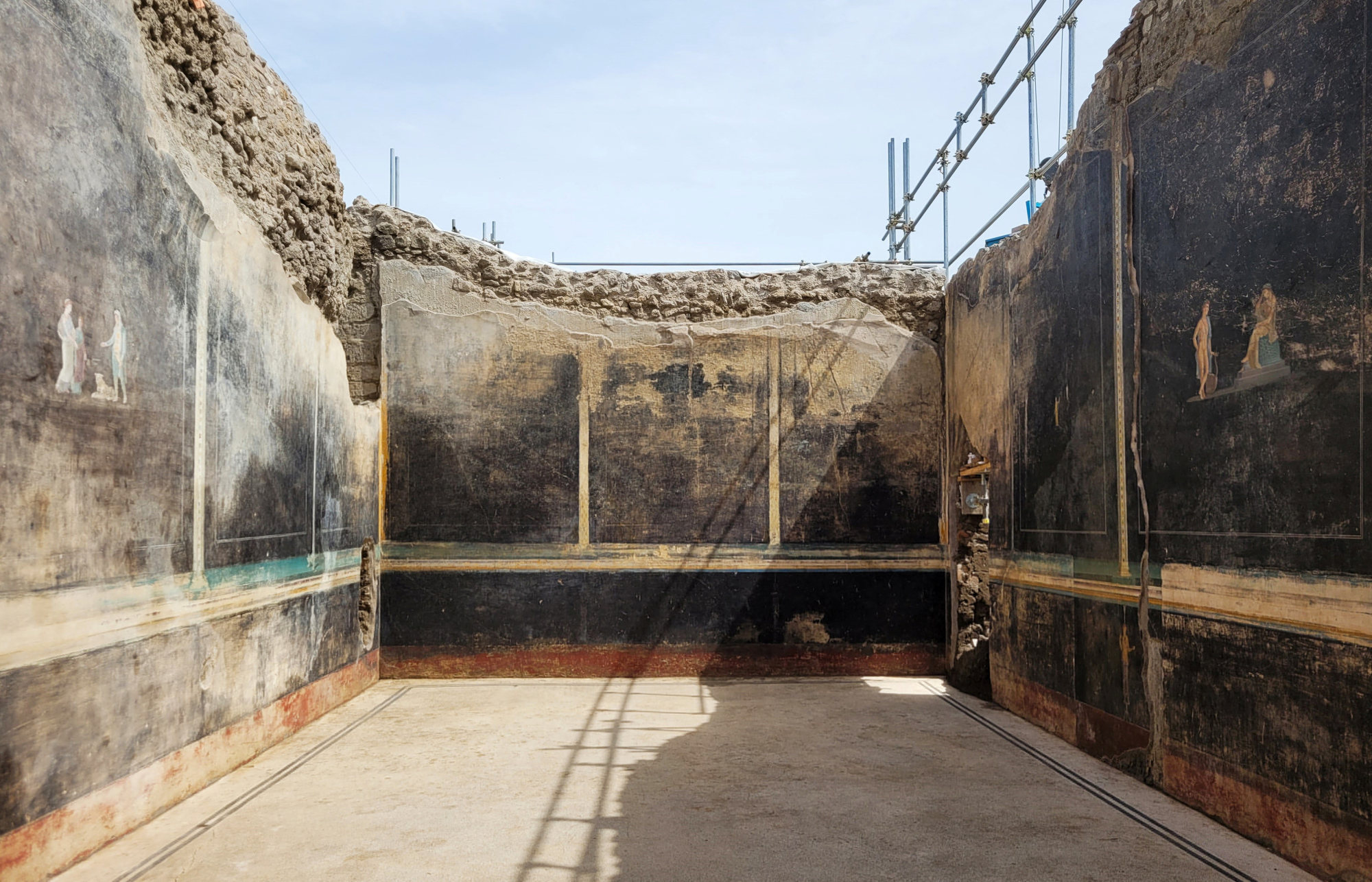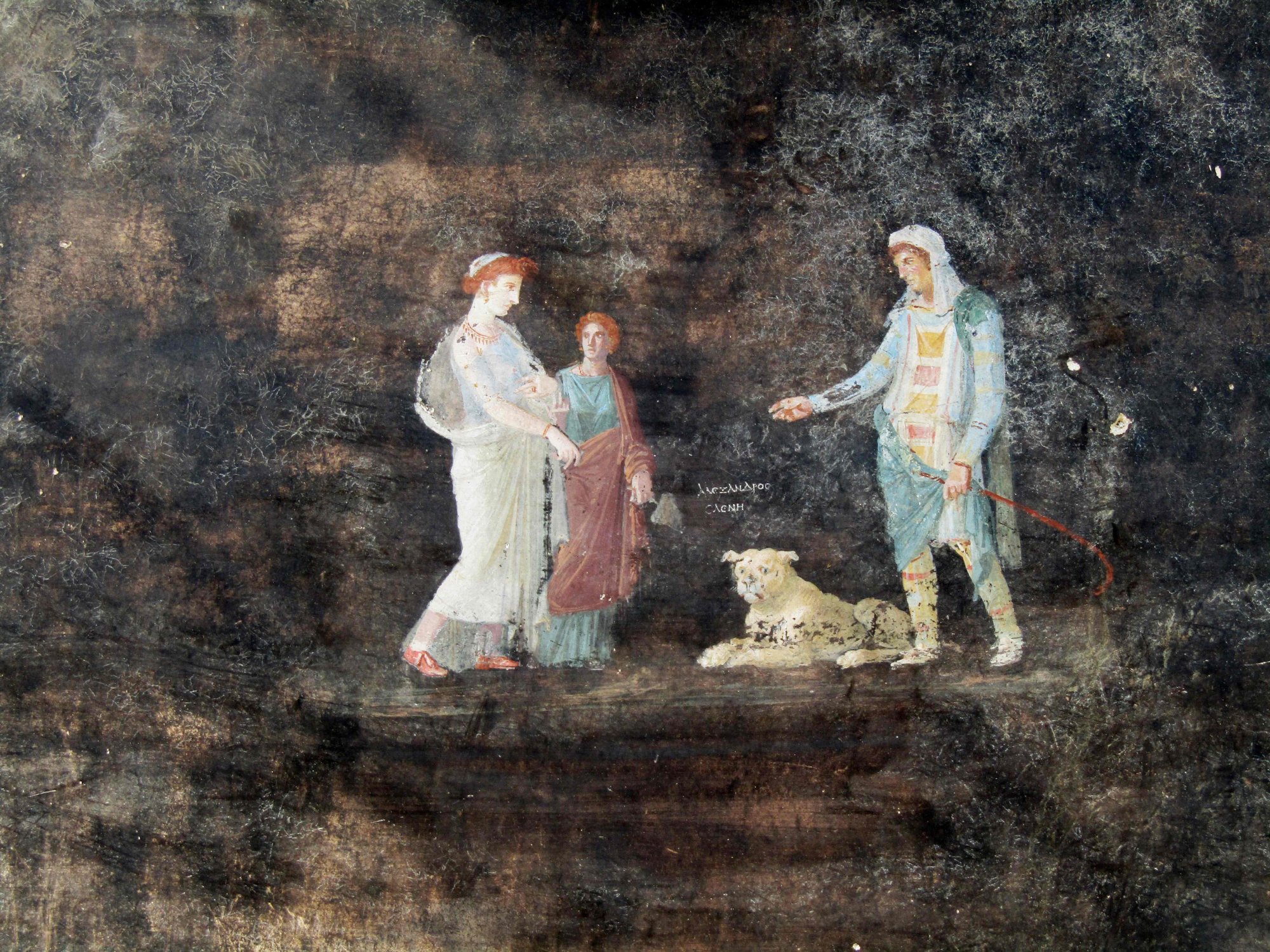
Dining hall with Trojan War artworks uncovered in Pompeii
- The 2,000-year-old paintings inspired by the Trojan War were found during excavations at the Roman city of Pompeii, Italy
- Pompeii and the surrounding countryside was submerged by volcanic ash when Mount Vesuvius erupted in AD 79, killing thousands of Romans
A black-walled dining hall with 2,000-year-old paintings inspired by the Trojan War has been discovered during excavations at the Roman city of Pompeii, authorities said on Thursday.
The size of the room – about 15 metres long and 6 metres wide – the quality of the frescoes and mosaics from the time of Emperor Augustus, and the choice of characters suggest it was used for banquets, Pompeii Archaeological Park said.

“The walls were painted black to prevent the smoke from the oil lamps being seen on the walls,” Gabriel Zuchtriegel, head of the park, said.
“People would meet to dine after sunset, and the flickering light of the lamps had the effect of making the images appear animated, especially after a few glasses of good Campanian wine.”
Pompeii and the surrounding countryside was submerged by volcanic ash when Mount Vesuvius exploded in AD 79, killing thousands of Romans who had no idea they were living beneath one of Europe’s biggest volcanoes.

The excavations are designed to improve the hydrogeological structure of the entire park, to make it more sustainable as the region copes with climate extremes - heavy rainfall and intense heat - that are threatening the Unesco World Heritage Site.
The dominant theme of the newly discovered paintings is heroism and fate.
One fresco depicts Paris and Helen, whose love affair caused the Trojan War, according to classical accounts. Another one shows doomed prophetess Cassandra and the Greco-Roman god Apollo.
According to Greek mythology, Cassandra predicted the Trojan War after receiving the gift of foresight from Apollo, but no one believed her. This was because of a curse Apollo put upon her for refusing to give herself to him.
“The mythical couples were starting points for talking about the past and life,” Zuchtreigel said.
Culture Minister Gennaro Sanguiliano said Pompeii “is truly a treasure chest that never ceases to surprise us and arouse amazement because, every time we dig, we find something beautiful and significant”.
Additional reporting by Associated Press, Agence France-Presse

